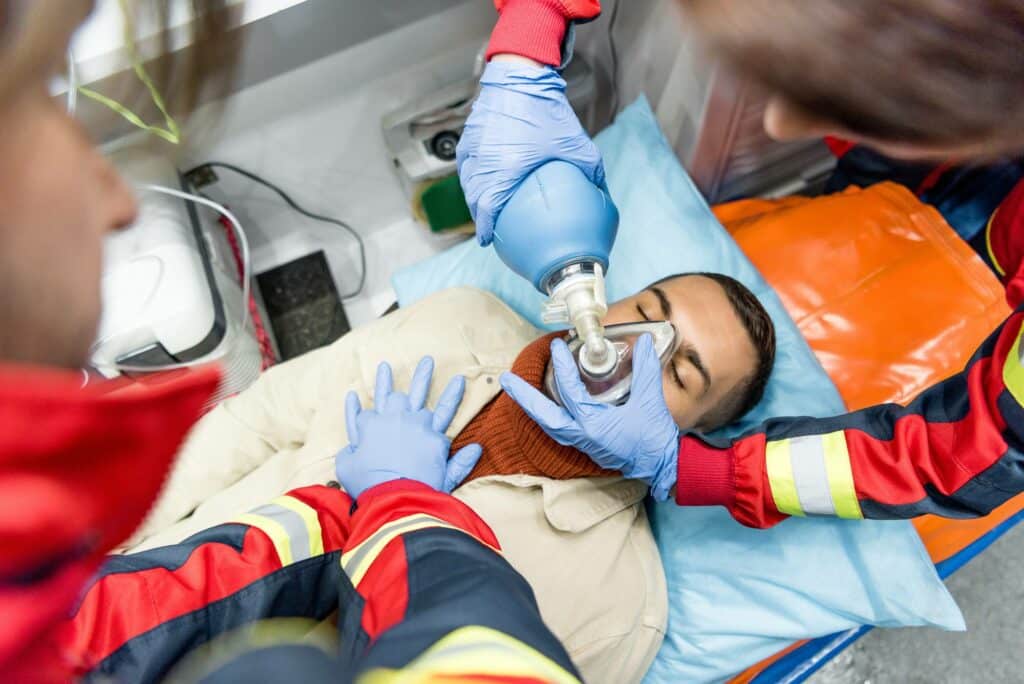Cardiopulmonary Resuscitation (CPR)is a group of problem-solving medical procedures and techniques designed to provide urgent treatment of life-threatening cardiac emergencies such as cardiac arrest and stroke. Memphis Midtown CPR offers American Heart Association BLS CPR Certification Class for Healthcare Providers, Medical, and Nursing Students.
Cardiopulmonary Resuscitation (CPR) is an emergency procedure that can help save a person’s life if their breathing or heart stops. When a person’s heart stops beating, they are in cardiac arrest. During cardiac arrest, the heart cannot pump blood to the rest of the body, including the brain and lungs. Death can happen in minutes without treatment. CPR Certification teaches you how to use chest compressions to mimic how the heart pumps. These compressions help keep blood flowing throughout the body. CDC 2018
HeartCode BLS is the AHA’s blended learning delivery method for the BLS Course. HeartCode blended learning delivers quality resuscitation education regardless of where providers are located and gives them more control to complete the course at their own pace. Providers first complete the online portion of HeartCode BLS and then complete a hands-on skills session with an AHA BLS Instructor or on a simulation station.

CPR Certification is a group of problem-solving medical procedures and techniques designed to provide urgent treatment of life-threatening cardiac emergencies such as cardiac arrest and stroke. Memphis Midtown CPR offers American Heart Association BLS CPR Certification Class for Healthcare Providers, Medical, and Nursing Students.
In one year alone, 475,000 Americans die from cardiac arrest.
More than 350,000 cardiac arrests occur outside of the hospital each year.
In 2015, any-mention sudden cardiac arrest mortality in the US was 366,807. CPR, especially if administered immediately after cardiac arrest, can double or triple a person’s chance of survival. About 90 percent of people who experience out-of-hospital cardiac arrest die. CPR certification can reduce the mortality rate caused by cardiac arrest.
Bystander CPR improves survival.
CPR certification saves lives. According to 2014 data, nearly 45 percent of out-of-hospital cardiac arrest victims survived when bystander CPR was administered. The majority of Out of Hospital Cardiac Arrests (OHCA) occur in public settings (18.8 percent), mostly homes/residences (69.5%), and nursing homes (11.7%).
Help is needed immediately.
Unfortunately, only about 46% of people who experience an OHCA get the immediate help that they need before professional help arrives. The 2017 Heart Disease and Stroke Statistics state that among the 356,000 OHCA that occurred, 45.7% (or 46%) received bystander CPR. CPR Certification can save a person’s life if they have a cardiac emergency.
Workplace Safety
There are about 10,000 cardiac arrests in the workplace each year in the United States, according to a report from the US Occupational Safety & Health Administration.
Did you know: only 50% of people can locate an automated external defibrillator (AED) at work?
With 10,000 cardiac arrests annually in the workplace, knowing this small piece of information has the potential to save thousands of lives.
The Sudden Cardiac Arrest Foundation reports that “If treatment is not provided within 10 minutes, the survival rate is close to zero. Because minutes count, the public plays a crucial role in saving lives threatened by SCA.”
According to the American Heart Association (AHA), the 5 links in the adult out-of-hospital Chain of Survival are:
Educational Strategies to Improve Outcomes from Cardiac Arrest examines best practices in education and applies them to resuscitation science. When implemented in training, guidance in this resource will help raise the quality of care and increase survival from cardiac arrest.
CPR Certification is a group of problem-solving medical procedures and techniques designed to provide urgent treatment of life-threatening cardiac emergencies such as cardiac arrest and stroke. Cardiopulmonary Resuscitation (CPR), Automated External Defibrillator (AED), and First Aid training.